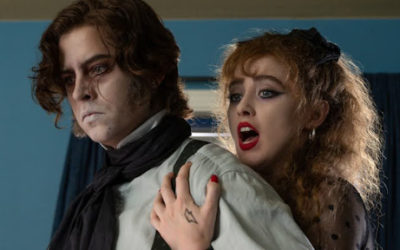Source: Variety
To say that filmmaker Quentin Tarantino is something of a controversial figure in Hollywood would likely be a bit of an understatement, especially when taking recent events surrounding the figure into consideration. On the one hand, Tarantino has more than proven himself to be one of the industry’s most consistently prolific writer/directors, starting his career on a strong note in the 1990s with such works as “Reservoir Dogs” and “Pulp Fiction” and continuing to this day with award-winning films like “The Hateful Eight” and, most recently, “Once Upon a Time in Hollywood”. On the other hand, Tarantino has also become somewhat infamous for expressing views that many would deem controversial, with his recent statements about the late Bruce Lee, whom he depicted in “Once Upon a Time in Hollywood”, being among the more recent comments to generate such controversy.
Opinions about Tarantino tend to be all over the place, but if there is one thing that most have come to admire about him, it’s his passion for film and theater preservation, going out of his way to use his resources to acquire and preserve cinematic institutions that might otherwise be forced into closure by various circumstances. Such passion has shown no sides of weakening, and just recently, Tarantino announced that he has made yet another purchase that will allow him to hold on to and protect one additional staple of Hollywood history.
On Monday, July 5th, Tarantino went onto the Armchair Expert podcast, hosted by actor Dax Shepard, to announce that he has purchased the Vista Theatre, a historical movie-going venue located on the famous Sunset Boulevard. “We’ll probably open it up around Christmas time,” Tarantino claims, “and again: only film. It won’t be a revival house. We’ll show new movies that come out where they give us a film print. It’s not going to be like the New Beverly. The New Beverly has its own vibe.”
The Vista Theatre is not the only venue currently in the possession of Tarantino. The Landmark New Beverly theater, as mentioned by Tarantino in the earlier quote, was purchased by the “Pulp Fiction” director all the way back in 2007. Although it was forced into temporary closure last year due to the ongoing COVID-19 pandemic, the New Beverly was fortunately able to reopen last month, allowing it to resume its exhibition of 16mm and 35mm films, one of the few currently operating venues to continue such a tradition.
The Vista Theatre, meanwhile, has yet to fully reopen, still needing a little more time to make a full recovery from the pandemic. That being said, when the venue is once again open for business, Tarantino, despite offering very little detail as to what he has in mind for the theater, promises a film-watching experience comparable to few other locations. “The Vista is like a crown jewel kind of thing,” Tarantino claims. “We’ll show older films, but it will be like you can hold a four-night engagement.”
Tarantino’s purchase of the Vista Theater comes at a time when most mainstream movie theaters are struggling to make a comeback after suffering major losses from the COVID-19 pandemic, a culmination of events that, as Tarantino himself puts it, “have taken the specialness out of movies.” In his rant against the current state of movie theaters, Tarantino expressed his frustration in how many venues, in an effort to be more commercially appealing, have made the moviegoing experience less fulfilling. “Some of these chains where they’re showing commercials all through it, they don’t turn the lights down, everything is stadium seating, plastic shit,” Tarantino argues. “They have been writing their own epitaph for a long time, but they assumed the business would take you along. It’s been crazy throughout my career to see how the film experience is lessened for the viewer like every five years.”
Tarantino’s resentment of modern moviegoing has become so strong that he believes that some of the theater chains that had to permanently shut their doors “deserved” such a fate, if his comments on the matter are any indication. “I never like any theater closing, but some of these exhibitors that are going, they f***ing deserve to go. They’ve taken all the specialness out of movies anyway, some of these chains,” Tarantino told Shepard, explaining that he doesn’t believe a movie theater should “recreate my living room.”
When discussing boutique cinemas, smaller theaters that have more approachable staff members and allow for a more personalized film-watching experience, Tarantino suggests that such venues might be able to survive an increasingly changing cinematic landscape, even as theaters find themselves having to adapt to a business that has forever been changed by the pandemic. “I am not talking about the La-Z-Boy, order nachos and margaritas,” Tarantino states. “I actually like the Alamo Drafthouse a lot, but I have a living room. I want to go to the theater.”
As these quotes clearly demonstrate, Tarantino is not one to hold back his words when it comes to expressing his viewpoints on a particular cinematic subject. Although there’s a very strong chance that many of his claims will likely not sit well with various individuals, especially those who work for the venues that had to permanently shut down, his love for cinema and determination to keep the cinematic experience as authentic as possible are unquestionable. With both the New Beverly and Vista theaters under his management, Tarantino’s quest to keep the theatrical experience alive and thriving to the best possible degree continues on. Whether or not he will try to buy even more theaters (which, given how many are still struggling, is not entirely out of the question) is not yet known, but either way, as controversial as he can be, Tarantino’s status as a champion of film and theater preservation is quite worthy of commendation.




